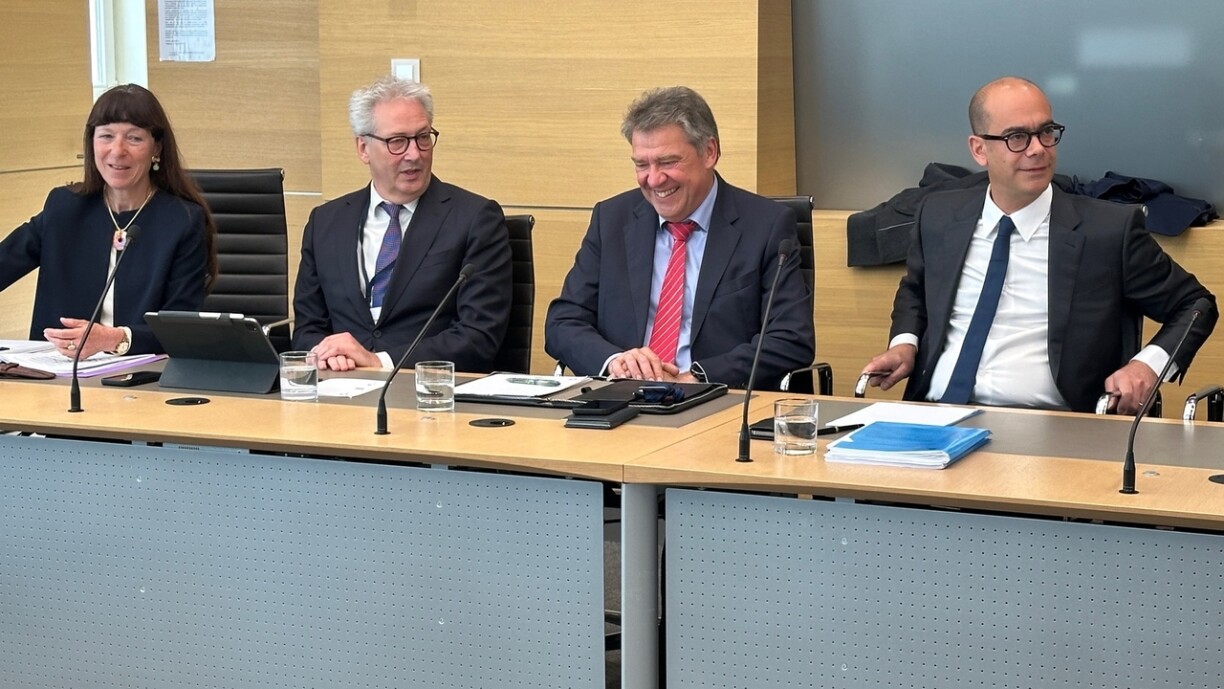
Since the eruption of the Caritas fraud scandal in which €61 million went missing, a parliamentary special commission set up in October 2024 has been tasked to politically investigate the case. On Monday, the commission held its eighth session, this time questioning representatives from Luxembourg’s state and savings bank, Spuerkeess – one of the institutions that approved credit and facilitated large-scale transfers for Caritas, alongside BGL BNP Paribas.
The question central to this hearing was the potential responsibility of the banks involved. However, MPs emerged with few answers.
Spuerkeess leadership maintained they had followed all regulatory procedures and cited ongoing investigations by the judiciary, the Financial Sector Supervisory Commission (CSSF), and the European Central Bank to justify their limited responses, frequently invoking professional secrecy.
MP Charel Weiler of the Christian Social People’s Party (CSV), who chairs the commission, stated plainly that nothing new had emerged from the hearing. This frustration was echoed by MP Marc Baum of The Left (Déi Lénk), who questioned how such massive transfers could have escaped notice.
MP Taina Bofferding of the Luxembourg Socialist Workers’ Party (LSAP) expressed scepticism about the bank’s reasoning, pointing to explanations that blamed international crises and suggested there were no anomalies. “It’s not clear why their internal alarm systems failed”, she said, noting that Caritas’ board of directors claimed two Spuerkeess executives had authorised credit lines, a decision the bank insists was based on a formal resolution.
MP Tom Weidig of the Alternative Democratic Reform Party (ADR) called for greater accountability from associations, arguing that, while financial institutions should be vigilant, they are ultimately not responsible for badly managed associations and their financial transactions. We live a liberal society, where associations enjoy a degree of freedom, their mistakes must carry consequences. Furthermore, the bank correctly verified the signature of the Caritas’ financial director.
Green MP Djuna Bernard noted that Spuerkeess claimed to have followed all standard practices, but welcomed a regulatory change due this autumn that will allow communication between sender and receiver banks during transfers – a safeguard she described as long overdue.
MP Sven Clement from the Pirate Party (Piratepartei) highlighted the vagueness of Spuerkeess’ internal investigation, saying it lacked actionable insight. He questioned the credibility of their repeated claim that no mistakes had been made.
The hearing revealed that some contact had indeed occurred between Spuerkeess and Caritas, once certain unusual patterns in the transfers were noticed. However, as Bofferding remarked, if a bank’s only point of contact is the very individual orchestrating the fraud, a rethinking of the system is clearly needed.
The scandal remains unresolved on many fronts. As noted in the hearing, the initial contact between Spuerkeess and Caritas was the charity’s financial director – now widely believed to have played a central role in the fraud.
The special commission, while not conducting a parallel criminal enquiry, is focused on identifying political or regulatory gaps that allowed the scandal to unfold.
Work will continue next week, when MPs will hear from representatives of BGL BNP Paribas, followed by Prime Minister Luc Frieden on 19 May. Pit Bouché, the former vice president of the Caritas board, is also set to appear before the commission in the near future. The commission’s work is expected to wrap up in June.
In the article published on 7 May 2025, we incorrectly reported that MP Tom Weidig of the Alternative Democratic Reform Party (ADR) called for greater accountability from banks. In fact, MP Weidig called for greater accountability from associations.
We regret the inaccuracy and any confusion caused, and we remain committed to reporting responsibly and accurately.
Read also: Former Caritas chair acknowledges shortcomings while facing special commission